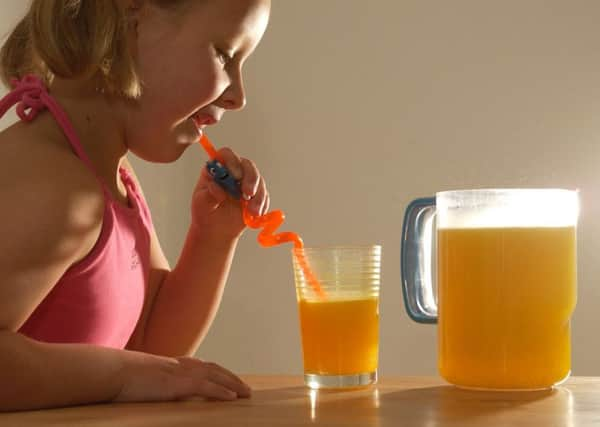‘Ignorance about Vitamin D’ as rickets cases soar


The findings come as figures show the number of children suffering from rickets, which is caused by a lack of Vitamin D and was once associated with Victorian poverty, has soared over the past decade.
Meanwhile, government figures suggest that up to a quarter of the population does not get enough of the “sunshine vitamin”, which is crucial for healthy bones.
Advertisement
Hide AdAdvertisement
Hide AdAnd as the clocks went back yesterday and the days continue to shorten, experts warn that the risk of a deficiency in Vitamin D, which is produced by sunlight, is increasing.
New research commissioned by Colief shows that mothers and some healthcare professionals are confused about why the nutrient is important, and how to get it.
According to the study, nearly a third (28 per cent) of mothers and expectant mothers surveyed said they were not planning to give the vitamin to their children.
Thirty-eight per cent did not know the importance of Vitamin D for their children – which is crucial for maintaining healthy bones and teeth – and nearly half (43 per cent) were not aware it is made in the skin during the summer months.
Some wrongly believed it was found in chocolate (5 per cent), wine (2 per cent), cheese (13 per cent) and orange juice (15 per cent).
Researchers questioned 250 pregnant women, 252 mothers with babies under the age of one and 502 mothers with a child aged under five years old.
The research also suggested some GPs and healthcare professionals were unclear about the symptoms of Vitamin D deficiency.
Less than a quarter (24 per cent) of the 50 healthcare professionals spoken to identified bowed legs as a common deficiency indicator.
Advertisement
Hide AdAdvertisement
Hide AdJohn Byrne from Colief said: “We shouldn’t be seeing cases of rickets in 2015.
“Vitamin D is so important for under-fives, pregnant and breastfeeding women as well as the elderly, but our research shows a real issue with the education around why vitamin D is so important both in parents and health professionals.
“We are really keen to highlight this and support further awareness into its benefits.”
Nutritionist and Colief Baby Panel expert Judy More said: “Not all of us get enough Vitamin D from sunlight on our skin when we are outside because in the UK we can only make it in the months from April to September.”